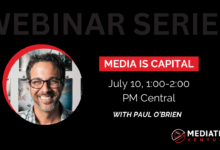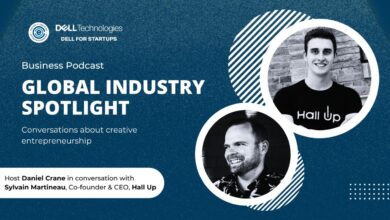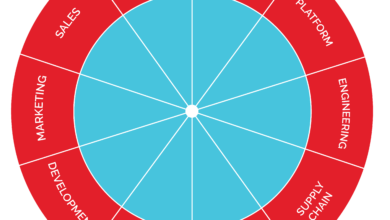How Star Wars Defined a Generation of Entrepreneurs

Star Wars / Startup articles are as common as womp rats on Tatooine; invariably quoting that you should Do or Do Not while citing the importance of mentorship. During May the Fourth this year (may the fourth be with you by the way), I was drawn into a wonderful discussion about the Star Wars films, that touched on the nature of different types of entrepreneurs – how the film defined a generation, how generations have cultural characteristics that define how people live and work, and how that overarching culture is what fosters how we work.
On Culture and Entrepreneurship
The way in which we work defines how we work; what we produce. Our respective cultures, in our countries and cities, distinct even by generation, defines how we work and what we accomplish as entrepreneurs.
American novelist Chuck Palahnuik (author of Fight Club), “The first step – especially for young people with energy and drive and talent, but no money – the first step to controlling your world is to control your culture. To model and demonstrate the kind of world you demand to live in. To write the books. Make the music. Shoot the films. Paint the art.”
That culture, the way we work, is influenced by the media. Before we get into the Galaxy Far Far Away, a couple of countries nearer nearby that exemplify that fact.
I had the honor last year, of meeting and introducing Saudi – American author Yasser Bahjatt. Founder of the trailblazing League of Arabic SciFiers and author of the 2015 novel Yaqteenya: The Old World, Bahjatt, explores the social and creative role of science fiction in the Arab World and its potential to transform the entire culture toward entrepreneurship.
“If you want to advance science, you have to advance Sci-Fi culture,” explains Yasser Bahjatt in his TED@Doha Talk. Yasser believes most technology has been foreseen at least 20 years in advance by Sci-Fi. “Aladdin, Arabian Nights, Ali Baba and the 40 Thieves, and Douglas Fairbanks The Thiefs of Bagdad, have been adding to the world’s imagination for decades.”
Drawing on his background in technology, his experiences developing a creative engine for science fiction in Saudi Arabia and his own writings, this talk explores his theory that no technological advance in the last 200 years was born of an original thought, but that all new technology can be traced to its inception in a science fiction novel. Yasser Bahjatt has forwarded discussions on the scientific concepts found in the Holy Quran, on commercial drones, on alternative histories, and on eSports in the Middle East.
The impact that stories and media are having on our economy of innovation is being embraced throughout the world. Pakistan as well comes to mind, where the Chaudhry Muhammad Akram Centre for Entrepreneurship Development (CMACED) at Superior University and Neo TV are working with Director Entrepreneurship at PITB Nabeel A. Qadeer, in Pakistan’s first TV reality business show — Idea Croron Ka. Their goal? To leverage the power of stories and media to inspire, educate, and transform.
“My motivation has always been to empower the youth of this country for I believe they hold the future of Pakistan in their hands,” noted Qadeer. “All that I have done, be it my work at Punjab Information Technology Board or starting this TV show, the motive has always been to work towards the betterment of this country.”
Media, books and films, both define and reflect our culture, and media has the power to define a generation, an industry, and indeed, an entire economy. Most working in technology are familiar with the impact, for example, of Star Trek’s communicator on the clamshell design of past Motorola phones.
“You don’t have to burn books to destroy a culture. Just get people to stop reading them.”
– Ray Bradbury
Entrepreneurship is generational and we need only a generation to completely pivot the direction of a culture, an industry, and innovation. Take a look at this data from Ofcom and BI Intelligence:

Now group those age brackets a little more along generations. I’m in my *mumble-mumbles* so that puts me squarely in the generation that grew up with TV, worked with early computers, does nearly everything on a laptop, and experienced the internet first hand as it developed. My father’s generation was quite a bit more radio until television, and invented the computer. The upcoming generation does vastly more via smartphone and thus most of the innovation being done today is influenced by that experience.
It’s that correlation between a generation’s experience with technology and how the media defines a generation and culture that drew me to a different way of thinking about the impact of Star Wars.
These Are the Entrepreneurs You’re Looking For
- Star Wars: Episode IV – A New Hope (1977)
- Star Wars: Episode V – The Empire Strikes Back (1980)
- Star Wars: Episode VI – Return of the Jedi (1983)
- Star Wars: Episode I – The Phantom Menace (1999)
- Star Wars: Episode II – Attack of the Clones (2002)
- Star Wars: Episode III – Revenge of the Sith (2005)
- Star Wars: The Force Awakens (2015)
- Rogue One: A Star Wars Story (2016)
What’s the order in which those films were available to you when your world view was established, as a child?
I started by having A New Hope. That’s the narrative that molded, to an extent, not only who I am but everyone approaching their 40s and above. What did we experience?
Passion drives everything. Skywalker with no more than passion to leave home, passion to avenge his loss, and passion to save the girl accomplished it.
But how?
First with a mentor. Someone who has walked that path before and KNOWs HOW to Luke can get started. Kenobi wasn’t what you might think of as an advisor, he was the teacher who opened the possibilities and through his experience and past, connected dots to the resources needed to get going.
Luke is our startup founder of the previous generation: motivated by passion, willing to be taught, fascinated with technology, and embracing the power of influence (the force).
Luke would not have left home without his first co-founder, our CTO and his team, with the fastest ship in the galaxy. Han is our hacker isn’t he? He can make the tech work to outrun even Imperial Starships, not the local bulk cruisers, mind you. I’m talking about the big Corellian ships, now.
 And in the spirit of the great startup mentor Peter Drucker – no venture is successfully undertaken without the person who knows the market.
And in the spirit of the great startup mentor Peter Drucker – no venture is successfully undertaken without the person who knows the market.
Leia joins us and really establishes that we can have hope because she knows the players, affirms the passion for their mission through her witnessing of the big problem. She’s the politician on film but on our team she’s the CMO who can build and lead rebel armies, symbolize the need to succeed, and has experience in the market in which Luke, Han, Kenobi, and Chewie endeavor to make a difference. Luke inspires our venture but Leia establishes why we’re doing it.
The Empire then struck back as indeed will/do competitors but it’s here we learn of the critical role of advisors and allies. Note the distinction between Obi-wan and Yoda. Kenobi teaches Skywalker about the force, how to use the lightsaber, and shows him the seriousness of the Problem they strive to Solve. Yoda is our advisor and notice the important difference, to a startup team, in their roles. Skywalker seeks out the IDEAL advisor, not just anyone willing to help; he goes for the perhaps the greatest guide available. Luke invests in the advisor and while Kenobi taught, Yoda guided. Why are their roles, in the context of a startup so distinct? Because the mentor knows Luke – he has the past and experience with the Dark Side and Empire but he’s familiar with Luke and can mentor him; Kenobi’s passion is as personal, having been master to Anakin. On the other hand Yoda is arguably more critical to our CEO’s path and the success of the venture; so much so that Skywalker invests the time (and equity) in what the diminutive Jedi has to say.
Startups of that generation reflect that culture and more. We can destroy the Death Star and appreciate that nothing can be accomplished by the Jedi alone (though it does take a bit of a Jedi mind trick to raise money).
I’ve got a bad feeling about this
 Younger generations were influenced by the same films but with a completely different perspective on the story. There’s this phantom menace we have overcome. We already know Darth Vader is the father of our founder and as such we’re not molded by the story of an innocent young man, unaware of the world and in need of mentorship, advice, and a team to take on the evil Empire. Instead, we’re concerned about clones (people stealing our ideas) and maybe even a little apprehensive about droids as debate robots, AI, and automation replacing jobs. And as entrepreneurs, instead of just taking on the Death Star and Vader, we seem to have have a bit of a sour taste in our mouth for the entirety of the Empire (Silicon Valley?) as though it will come at our ideas as though seeking revenge.
Younger generations were influenced by the same films but with a completely different perspective on the story. There’s this phantom menace we have overcome. We already know Darth Vader is the father of our founder and as such we’re not molded by the story of an innocent young man, unaware of the world and in need of mentorship, advice, and a team to take on the evil Empire. Instead, we’re concerned about clones (people stealing our ideas) and maybe even a little apprehensive about droids as debate robots, AI, and automation replacing jobs. And as entrepreneurs, instead of just taking on the Death Star and Vader, we seem to have have a bit of a sour taste in our mouth for the entirety of the Empire (Silicon Valley?) as though it will come at our ideas as though seeking revenge.
I find that very characteristic of newer startup communities as the culture of innovation and entrepreneurship has permeated from Silicon Valley to everywhere else in the world… they take ideas, IP and NDAs are what matters, we can do it ourselves (bootstrap) just as Kenobi’s younger beliefs and Anakin’s passion would have us believe, and we look to the Senate (our own local governments, just as Padme did) to solve our problems.
 We have an entire generation influenced not by A New Hope but by the evils of the Senator Palpatine and debate of whether or not government is the answer. Anakin showed us that hate leads to power and though that power was the Dark Side, he became the most powerful in the annuls of the galaxy far far away; while hate doesn’t remotely characterize entrepreneurs of today, we are more motivated by our focus to address that which we don’t like, with our solution, rather than passionately and unwaveringly working to change everything.
We have an entire generation influenced not by A New Hope but by the evils of the Senator Palpatine and debate of whether or not government is the answer. Anakin showed us that hate leads to power and though that power was the Dark Side, he became the most powerful in the annuls of the galaxy far far away; while hate doesn’t remotely characterize entrepreneurs of today, we are more motivated by our focus to address that which we don’t like, with our solution, rather than passionately and unwaveringly working to change everything.
“Now, witness the power of this fully operational battle station.”
“Only at the end do you realize the power of the Dark Side.”
It was the Return of the Jedi, the conclusion of the original startup narrative, that accomplished the difference. The prequels led entrepreneurs down the Dark Side while Revenge of the Sith left us with impending doom.
Culture of Austin vs. Silicon Valley
I live in Austin now and it is very reminiscent of the Rebel Alliance. I believe that’s why so many are drawn here and why entrepreneurship is thriving from this part of the world. We have the creative story tellers, the George Lucas, as well as the team. We’re building here not only the next ventures but telling the new stories that will mold the next generation.
Austin wants to Keep it Weird though and we have to be little careful of keeping it the way it was, sticking our head in the sands of Tattoinne, because Cloud City, of say Dallas, or Chicago, or New York, seems daunting. We have to be careful of looking to the Senate to deal with Uber for us as our passionate entrepreneurs are better suited to solve problems and Han, Luke, Leia, and Chewie would not have succeeded without the support of their allies throughout the galaxy; and while my story, I think, has a lesson to consider, it’s NOT that Silicon Valley is the evil Empire against which we’re rebelling – rather perhaps, it’s that they are the old Jedi Council from which we might find invaluable advisors, mentors, and an academy that can train the next generation in that ways that our new Rebels might succeed.
 That gorgeous rendering of Austin, with the Death Star looming, thanks to Christopher Sherman of Over Austin, is really what sparked my thought about the impact of the films not as lessons for entrepreneurs, but in how stories establish the culture through which we innovate. This part of the galaxy, Austin, TX, is perhaps our New Hope for the media and technology industries, as we head into the new generation; the force is awaking, here, and our new Rogues are scrappy, building teams, leaning on the previous generation’s wisdom and experience, and taking on the next set of challenges.
That gorgeous rendering of Austin, with the Death Star looming, thanks to Christopher Sherman of Over Austin, is really what sparked my thought about the impact of the films not as lessons for entrepreneurs, but in how stories establish the culture through which we innovate. This part of the galaxy, Austin, TX, is perhaps our New Hope for the media and technology industries, as we head into the new generation; the force is awaking, here, and our new Rogues are scrappy, building teams, leaning on the previous generation’s wisdom and experience, and taking on the next set of challenges.
May the force be with you.








Really good summary, Paul! One of the better comparisons I’ve read in a while.
Interesting read. I like the idea of using the Campbellian monomyth to outline the entrepreneurial journey. If you dig even further into “Legends” (formerly the Expanded Universe) there’s even more interesting comparisons to entrepreneurship. Some is quite boring, such as the story about Darth Plagueis, who is a prominent Muun, a race of manipulative bankers who are responsible for both the growth of the Republic and expansion into the Outer Rim worlds and its enslavement and obeisance to the Intergalactic Banking Clan. But then again, you always have the scruffy-looking nerf-herders who bootstrap their operations and are somehow able to defeat people with more money and resources than them. There are some interesting characters in the comicbooks as well. I’m particularly fond of the resourceful and inventive Doctor Aphra.
The heroes of Star Wars aren’t entrepreneurs, they’re public servants. This is public service week so show some respect!
Thank you for this amazing peace, I hope our paths would cross again soon (maybe you can help me give a talk in SXSW 😉 )
Let’s look to that Yasser! And whenever you’re passing through, happy to set up the forum for you to share your thoughts. The work we’re doing now, in MediaTech Ventures, is squarely in the space that you’ve discussed.
Here’s the article I wrote last year
https://theamericangenius.com/entrepreneur/star-wars-and-small-businesses/
That’s fantastic!
“Be pragmatic – and idealistic at the same time” “Go with your instinct – and know when to say no”
I was just having a discussion about how successful founders dream blindly and think logically.
I like the level of detail that you gave to your article, as well as the attention to the series.
So true. I was one of those recipients!
I’m still astonished there are as many people who haven’t seen any star wars movies as there are out there….
Absolutely loved this Paul. Great, stuff!
Cheers Steve Harper. Would love to do a lot more culture / startup stories and translations. Really fun way to look at the world and teach how people think